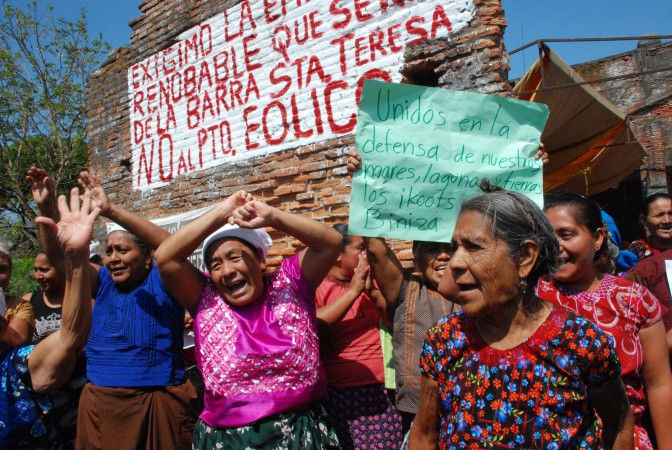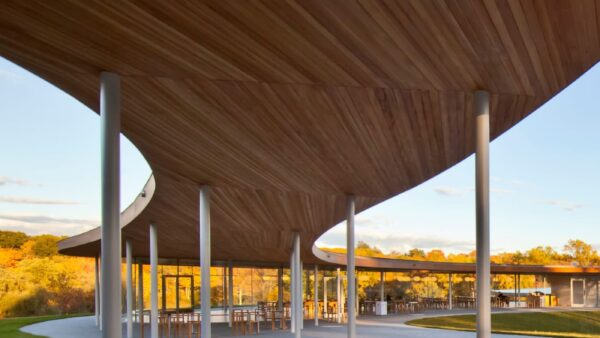Environmentalists and indigenous communities in southern Mexico are becoming increasingly militant in their opposition to the development of wind farms on the Tehuantepec Isthmus, the thinnest part of the country, which contains the states of Oaxaca, Chiapas, Tabasco and Veracruz.
Between February and October a wind known as the Tehuano blows through the gap between the mountains of Mexico and Guatemala. This natural funnel now has the highest density of wind farms in Latin America, with 15 facilities completed and a further 13 planned. A dozen companies from around the world have together installed more than 3,200 turbines, investing some $4bn over the past 20 years.
The Interamerican Association for Environmental Defence (AIDA), an NGO based in San Francisco, has raised concerns about the “extensive environmental damage” caused by the farms, and said “studies to identify, prevent and alleviate these damages have never been carried out. Impacts include the burning of large swaths of pastureland, mangrove deforestation and the destruction of migratory bird habitats”.
Patricia Mora, a professor of ecology at the National Institute of Technology in Oaxaca, told the environmental website Truthout that the construction of the wind farm required an area to be “dismantled”. She said: “This is a process through which all surrounding vegetation is eliminated. This means the destruction of plants and the displacement over time of reptiles, mammals, birds, amphibians, insects, arachnids, fungi and so on.”

Protesters from the Huave community demonstrating against the Mareña Renovables scheme (Source: Santiago Navarro)
She added that the resulting disruption to the ecosystems had a knock-on effect on the wider environment. “When vegetation disappears, these ecosystems are converted into uninhabited deserts and solar radiation changes the dynamic of the soil, prohibiting the growth of new vegetation.”
The environmental damage is linked to a struggle over the rights of local communities. AIDA says in many cases they have not been consulted before work begins, and that there have been “threats and attacks by paramilitary groups and state officials seeking to silence opposition to the development of wind farms”.
Mariano López Gómez, of the Juchitán People’s Popular Assembly, told Reuters that his group was not opposed to clean energy, but he said “we want respect for our indigenous communal way of life”.
Some projects have been more successful than others.
The Mareña Renovables scheme, which was to have been the biggest in Mexico with 396MW turbines, was suspended after members of the Huave indigenous community seized the town hall and set up their own government, the Assembly of the Indigenous Peoples of the Isthmus in Defence of the Land and Territory (UCIZONI).
In a letter written to Omar Gomez, UN High Commissioner for Economic, Social and Cultural Rights, UCIZONI wrote: “This wind is part of our culture, traditions and spirituality, but for these companies it is simply a source of wealth from the sale of wind electricity and from the sale of carbon credits and access to other financial mechanisms of the so-called ‘green economy’.”
The letter added that the power generated went to large companies such as Wal Mart, Heineken, Cemex and Bimbo at very low costs, whereas “communities pay very high rates, and suffer prosecution if they cannot afford the high electricity fees”.
This protests culminated in a legal challenge and a court injunction, which halted work on the scheme. The status of the project is still unresolved.
By contrast, the $400m, 164MW Bià Stinú wind farm, built by Électricité de France (EDF) with support from the Climate Investment Funds, has successfully worked with local groups. Thomas Mueller, EDF’s country manager for Mexico, said responsible negotiation with local people was the key to the project’s success. The company also hired a number of local people, which helped to overcome opposition.
The Mexican Environmental Law Centre, another environmental NGO that has scrutinised the growth of wind farms in Tehuantepec Isthmus, has argued for a development protocol to guarantee respect for human rights, protect the environment, promote economic growth and encourage links between private sector developers, state and local governments and local communities.










